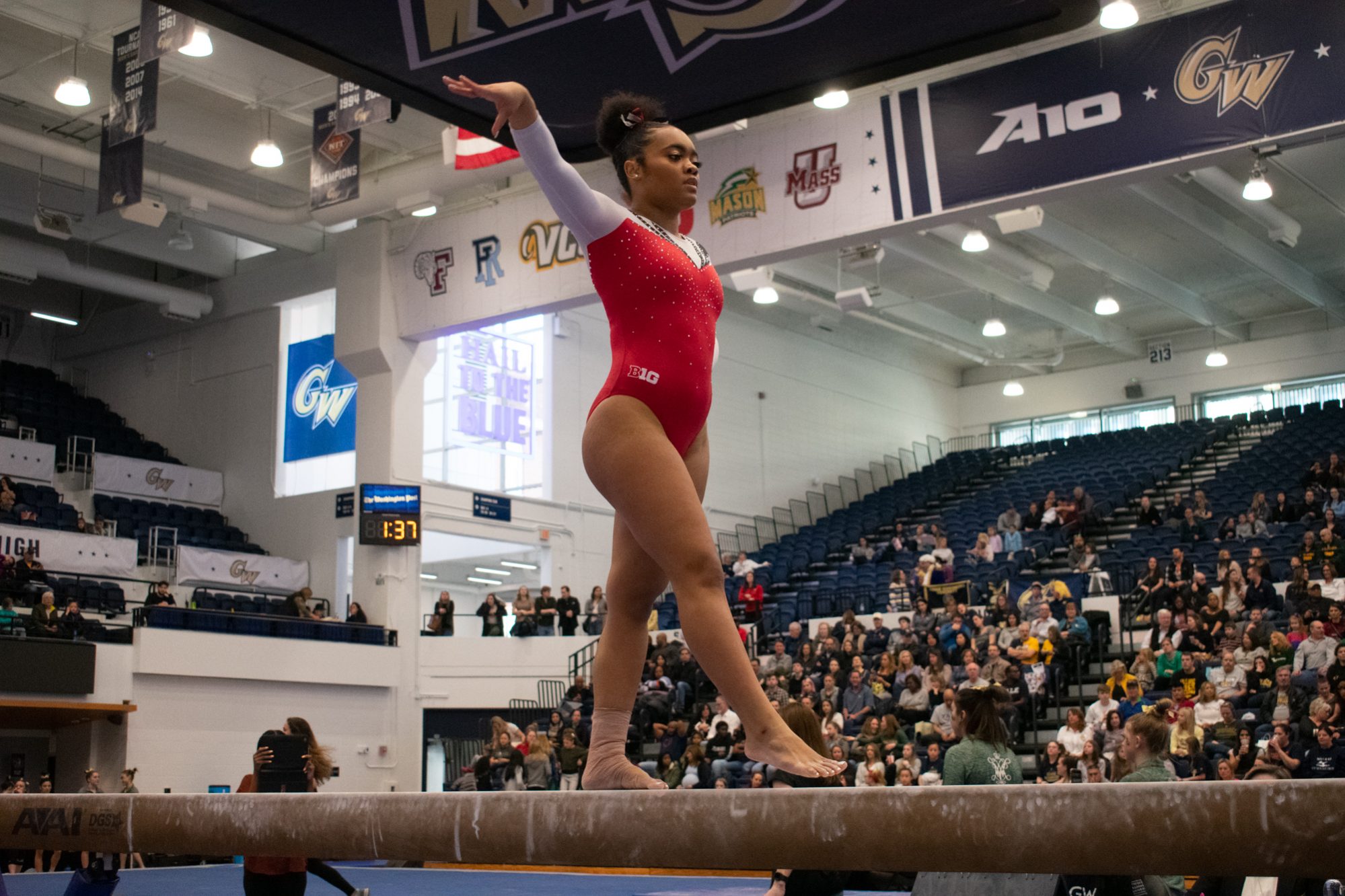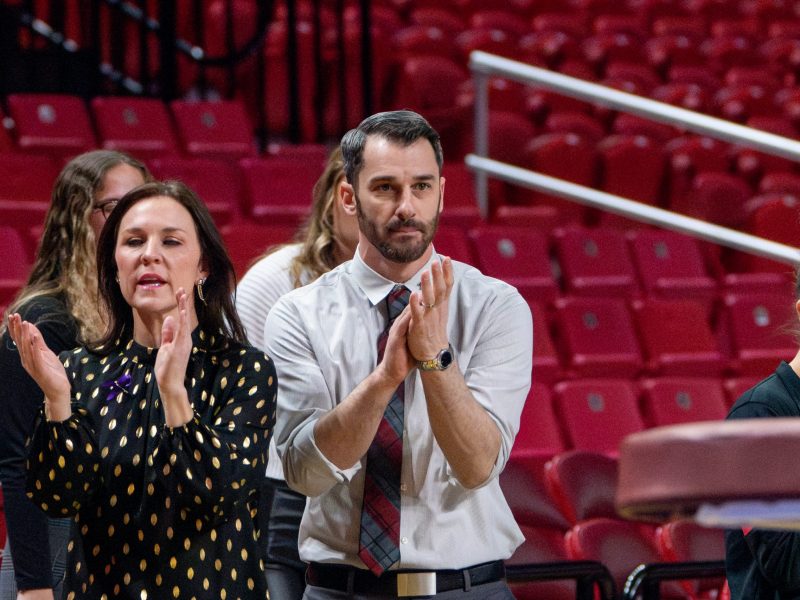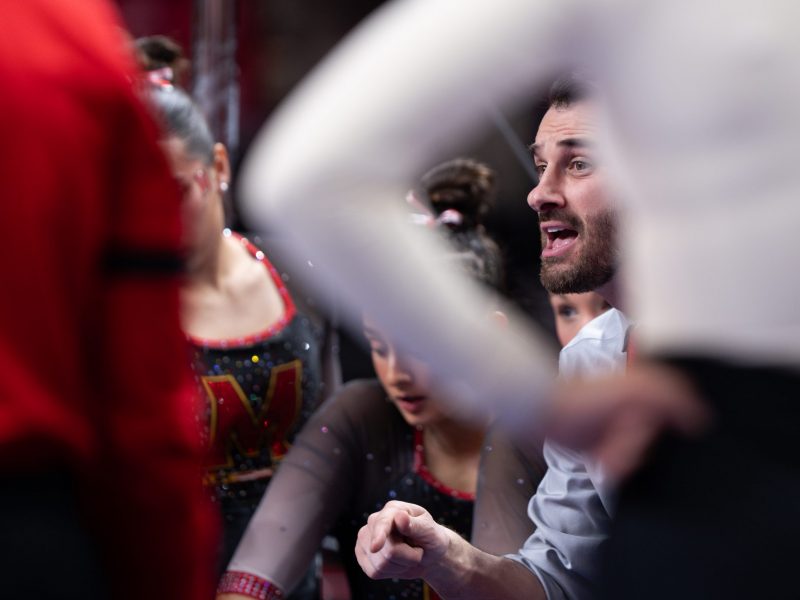Collea Burgess pushed herself off of the vault, her body becoming a whirlwind of maneuvers in the air. And as she came down on the mat, she could only smile at her teammates. That performance helped Burgess match her career-high of 9.85 on the apparatus for the third time.
But that was the most Maryland gymnastics could muster in its third rotation.
The team followed up Burgess’ stellar showing with a pair of scores below 9.70 on the vault, the Terps unable to replicate the performance that earned it the 10th-best score nationally on the apparatus entering this week. And those missteps would ultimately hurt them on Saturday afternoon, as No. 22 Maryland narrowly finished second with a 195.30 team score in a tri-meet with No. 17 Illinois and Rutgers in Piscataway, New Jersey.
“I thought our vaults were pretty clean. Maybe one or two landings weren’t as crisp as last week,” coach Brett Nelligan said. “That’s just the sport; the judges see it one one way one week and different the next.”
[After 10 months away, Maryland gymnastics posts 194.875 against Penn State]
Nelligan’s squad entered this meet last Monday after the Terps’ home opener against Michigan State was postponed due to COVID-19 concerns with the Spartans.
Maryland started on the beam during its first rotation. Scores under 9.60 from Burgess and Olivia Weir meant the tail-end of the beam lineup had to play catch-up.
But Reese McClure and Audrey Barber delivered, posting matching scores of 9.825 to keep the Terps from sinking early. Maryland posted a 48.45 on the beam, a slight improvement from the first meet with Penn State.
“I definitely feel a bit of pressure, especially on beam and bars,” Barber said. “If there’s a bobble here and there, I feel that pressure that I really have to hit this to get a good overall score.”
The Terps held serve through their next two rotations. They had another dominant showing on floor, posting above 49.00 for their second consecutive week as Barber, Bri Rouse, and Emma Silberman all scored a 9.85.
After its lackluster vault performance, Maryland was facing a 0.80-point deficit to Illinois heading into the fourth and final rotation. And the final round was mostly in the balance. The Terps would be competing on the uneven bars and the Fighting Illini on the vault, each team’s worst apparatus from a week ago.
Maryland posted several strong scores on bars, including a 9.925 from Barber and a 9.875 from sophomore Aleka Tsiknias. And freshman Elizabeth DeBarberie improved her score from the first meet with a 9.725 — avoiding a fall this time.
“I think some of the nerves went away,” DeBarberie said. “I was still kind of nervous, but they were good nerves this time.”
[Maryland gymnastics hopes to carry its successes from a shortened season into next year]
But the gap entering into the final rotation was too wide to overcome, as Maryland fell just short of Illinois’ 195.525.
Barber went on to post the highest all-around score in the meet with a 39.40, and Burgess’ 9.85 on the vault was the best among all three teams. However, the early miscues on vault and beam obscured the Terps’ improvements and landed Maryland in the spot it occupied throughout the entirety of the afternoon — second place.
“Week one, it was our first event in a year, and it was a little tight,” Nelligan said. “It really came down to us doing what we do in the gym, and that’s more what it looks like at practice.”



